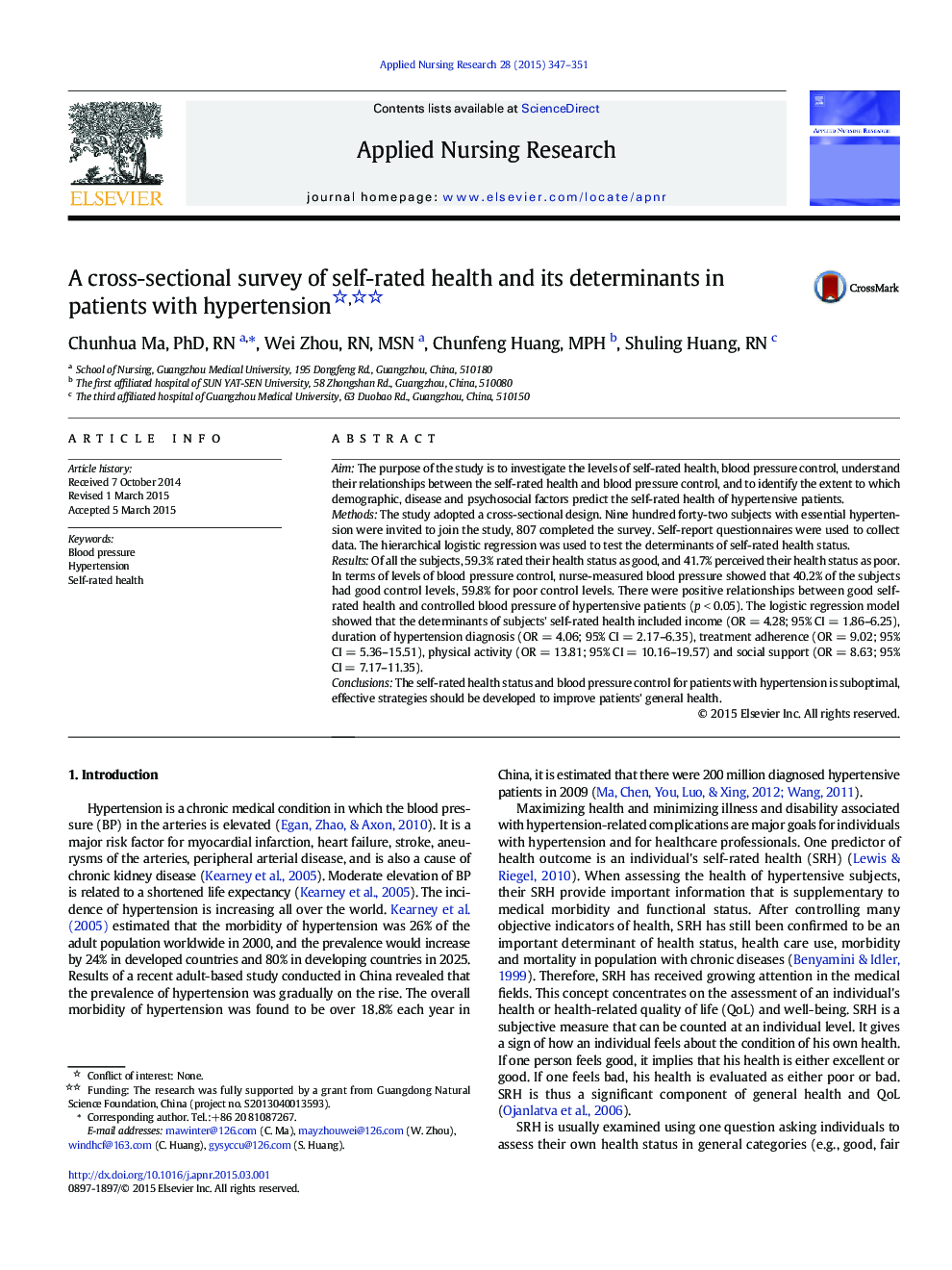| Article ID | Journal | Published Year | Pages | File Type |
|---|---|---|---|---|
| 2644503 | Applied Nursing Research | 2015 | 5 Pages |
AimThe purpose of the study is to investigate the levels of self-rated health, blood pressure control, understand their relationships between the self-rated health and blood pressure control, and to identify the extent to which demographic, disease and psychosocial factors predict the self-rated health of hypertensive patients.MethodsThe study adopted a cross-sectional design. Nine hundred forty-two subjects with essential hypertension were invited to join the study, 807 completed the survey. Self-report questionnaires were used to collect data. The hierarchical logistic regression was used to test the determinants of self-rated health status.ResultsOf all the subjects, 59.3% rated their health status as good, and 41.7% perceived their health status as poor. In terms of levels of blood pressure control, nurse-measured blood pressure showed that 40.2% of the subjects had good control levels, 59.8% for poor control levels. There were positive relationships between good self-rated health and controlled blood pressure of hypertensive patients (p < 0.05). The logistic regression model showed that the determinants of subjects' self-rated health included income (OR = 4.28; 95% CI = 1.86–6.25), duration of hypertension diagnosis (OR = 4.06; 95% CI = 2.17–6.35), treatment adherence (OR = 9.02; 95% CI = 5.36–15.51), physical activity (OR = 13.81; 95% CI = 10.16–19.57) and social support (OR = 8.63; 95% CI = 7.17–11.35).ConclusionsThe self-rated health status and blood pressure control for patients with hypertension is suboptimal, effective strategies should be developed to improve patients' general health.
